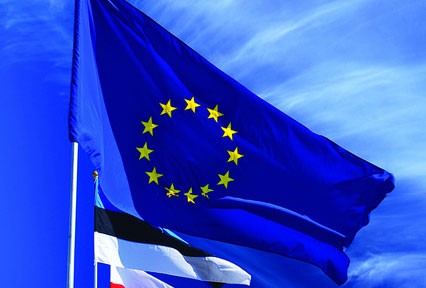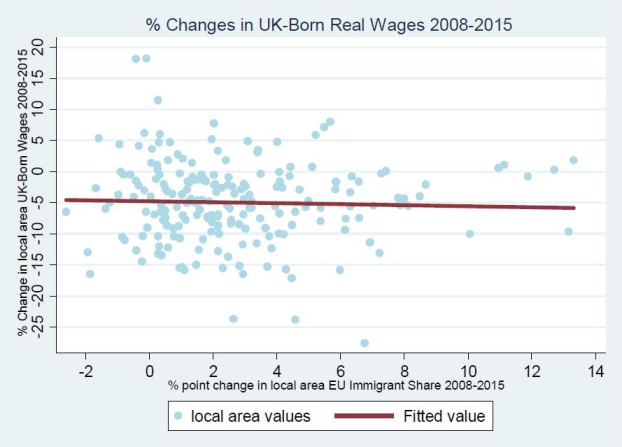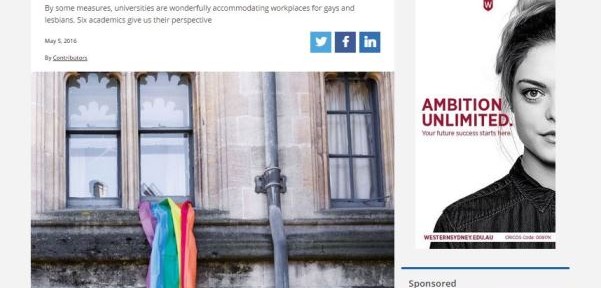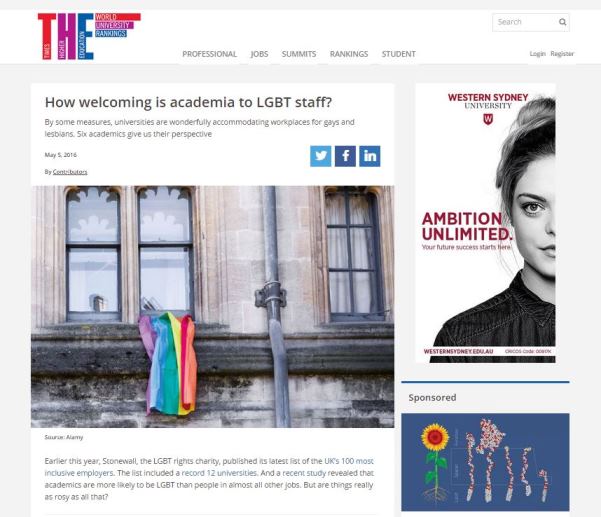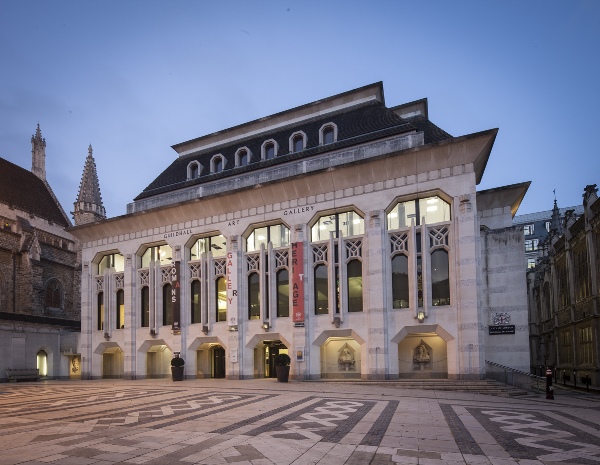This post was contributed by Dr Nadine El-Enany, lecturer in Law at Birkbeck’s School of Law School. On 15 June 2016, Dr El-Enany presented at Law on Trial – the School’s annual public lecture series which this year focused on the EU referendum. Here, Dr El-Enany touches on the themes she explored in her talk which explored Europe’s current migration crisis.
This post was originally published on CriticalThinking.org on Sunday 19 June 2016.
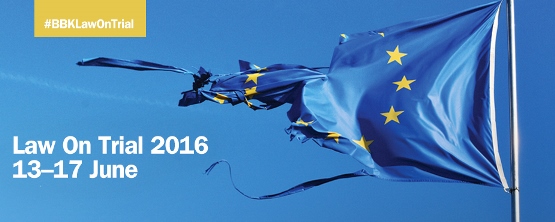
This week Jo Cox, a pro-immigration Labour MP was brutally murdered by a man who shouted Britain First as he killed her and who gave his name in court on being charged with her murder as “Death to traitors. Freedom for Britain”.
Jo Cox was killed a week before the referendum on Britain’s EU membership and following months of campaigning which has been dominated by the topic of migration. This referendum has not felt like an exercise in democracy. There is something painfully undemocratic about denying EU citizens from other Member States living in Britain a vote. The message to them is that they do not belong here. Their neighbours, co-workers, friends and family decide on their future for them. Worse still, the referendum has licensed the expression of racism and xenophobia, which has been unleashed with deadly consequences. The racist discourse that has defined the Brexit campaign must be understood in the context of Britain’s imperial legacy. The terms on which the debate around the referendum have taken place are symptomatic of a Britain struggling to conceive of its place in the world post-Empire.
In this context waiting for Lexit is to be the frog in that cautionary tale — the one that sits in boiling water until it is too late. I have taught EU law for many years and have always tried to instil in my students a healthy scepticism about the EU. I have worked to show them that it is possible to be critical of the neoliberal, capitalist, imperialist EU and not fall into the anti-migrant, sovereignty-fetishising UKIP camp. When the EU referendum was first announced, I made a Lexit argument when the topic came up.
A vote for the EU is a vote for capitalism, austerity and militarised borders, I’d say. The reality is that argument has elicited only the minutest of echoes. The Brexit campaign has been entirely dominated by the ugliest form of Euroscepticism imaginable. As Priyamvada Gopal has put it, a vote for Brexit is a vote for the “magnificent lie that exploitation, austerity, greed and impoverishment have all come to Britain from the nasty outside”. Lexit is a dream that has not been realised. Waiting for Lexit is like waiting for Godot — in more ways than one. Graham Hassell has aptly described Beckett’s play of that name as “a metaphor for… mainland Britain, where society has ever been blighted by a greedy ruling élite keeping the working classes passive and ignorant by whatever means.”
The “means” adopted by the Brexit campaign in a bid to sway voters have primarily consisted of scare-mongering on the issue of migration. Despite the rhetoric about migrants being a drain on resources, HMRC tax figures for 2013–14 show that migrants contributed £2.5 billion more than theytook out in benefits, but I will neither myth-bust around migration nor be drawn into a debate about whether or not migrants enrich the societies in which live because fundamentally that is a racist question — it erases the history of the British Empire which has set in motion the migration of today and assumes a pre-existing, static society, membership of which can only be validly determined by birthright. Migrants tend to have the least capital and so are easiest to exploit. We have seen this in the unrelenting scapegoating of migrants that has characterised the Brexit campaign, a convenient distraction from the material consequences of the current government’s austerity measures.
It is not that I expected better of Michael Gove, Boris Johnson and Nigel Farage. I merely hoped they would not succeed, as they have, aided by the British mainstream media, in drowning out the possibility for a Left movement in opposition to the EU to emerge. It is difficult to choose a low point in the Brexit campaign. Was it when Nigel Farage had the gall to say to a black woman who challenged him on the racist rhetoric of the Brexit campaign in the course of a live televised debate that he is “used to being demonised”? Or Michael Gove’s Islamophobic rant about Turkish birthrates and criminality? Or UKIP donor-funded Leave.EU’s recent tweet, “act now before we see an Orlando-style tragedy here before too long”? Or Farage’s latest poster depicting non-white refugees crossing the Croatia-Slovenia border in 2015 along with the slogan “Breaking Point”, which has been reported to the police for inciting racial hatred?
Being faced with a choice between between David Cameron and Nigel Farage is a nightmare scenario for any anti-racist and anti-capitalist. With the debate on the referendum eclipsed by the topic of migration, it is no surprise Cameron is struggling to hold the fort having spent the last five years peddling the lie that migrants are to blame for society’s ills rather than his government of millionaires and their penchant for cuts to vital public services. But if Britain votes Leave, it does so on the terms of the racist and xenophobic Brexit campaign. A Leave vote would provide a mandate for Brexit leaders to push for Fortress Britain, which already exists insofar as it can as an EU Member State. Britain is the most fortified of all EU countries. It is not part of Schengen. It has a flexible opt-out from all EU law on immigration and asylum, which it has consistently exercised to opt into restrictive measures that further strengthen its capacity to exclude and out of those aimed at enhancing protection standards.
There is no “refugee crisis” in Britain. Britain has barely increased its resettlement quota in light of the movement of so many desperate Syrians, and a similar number of asylum applications have been made in Britain this year as in 2008 unlike the higher numbers we see in other EU countries. Britain has been the strongest advocate of the EU Dublin Regulation, which sees people seeking asylum confined to Southern Europe, sometimes under conditions found to constitute inhuman and degrading treatment by the European Court of Human Rights. We will see no loosening of Britain’s borders if it leaves the EU, quite the opposite. A Leave vote would provide a validating framework for the enactment of the ugly promises the Brexit campaign has made — take their wish for an Australian style immigration system for example, an idea originally proposed by Tony Blair, inspired by Australia’s “Pacific Solution”. We know what that looks like, visas for the white and privileged while brown and black refugees self-immolate in prisons on remote Pacific islands.
Nor is there a “migration crisis” in Britain. The only crisis identifiable is that caused by a capitalist system which sees the ongoing enrichment of the few and impoverishment of the many. Capitalist and imperialist structures enable oppression on a mass scale. Leaving the EU is not going to ameliorate this. In fact, the British government was so afraid that the EU might empower British workers that it negotiated an opt-out from the EU Charter of Fundamental Rights because it guarantees the right of workers to take strike action. Unlike in other EU countries, there is no right to strike in Britain. Successive governments have legislated to curtail the possibility for industrial action, the most recent assault being in the form of the Trade Union Act 2016.
The run up to the EU referendum has shown Britain for what it is. Woodwork: the washed-up bracken of the British Empire, and the ugly flotsam of its legacy of racism. From this woodwork the Brexiters have emerged. They have long romanticised the days of Empire when Britannia ruled the waves and was defined by its racial and cultural superiority. It is no coincidence that Farage has a preference for migrants from India and Australia as compared with East Europeans, and has advocated stronger ties with the Commonwealth. This referendum has not been about Europe, but about Britain and its imperial legacy. For Brexiters, turning their back on Europe and turfing out their neighbours is a step toward salvaging the shipwreck of the British Empire, which saw the exploitation of peoples, their subjugation on the basis of race, a system that was maintained through the brutal and systematic violence of the colonial authorities.
The violence in the Brexit rhetoric of “taking back control of our borders”, of excluding others for self-interested goals at a time when thousands of refugees are dying at sea, is resonant of the racism that pervaded imperial Britain at the time of the 1781 Zong massacre which saw slaves thrown overboard by their captor to save a British slave ship and in the interest of profiting from an insurance claim. If what we want is to live in a more equitable society, it is dangerous to begin by voting for an outcome which has been driven by racism. A nostalgia for empire is no starting point for emancipatory struggle based on solidarity with the oppressed.
This post represents the views of the author and not those of Birkbeck
Find out more
- Law on Trial 2016
- Courses at the School of Law
- Dr Nadine El-Enany (Follow Dr El-Enany on Twitter: @NadineElEnany)



